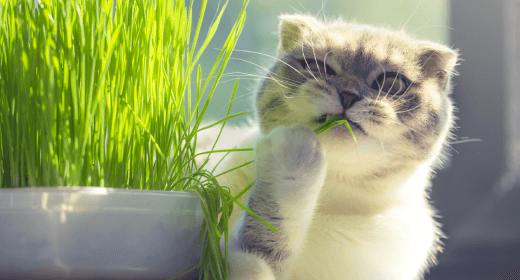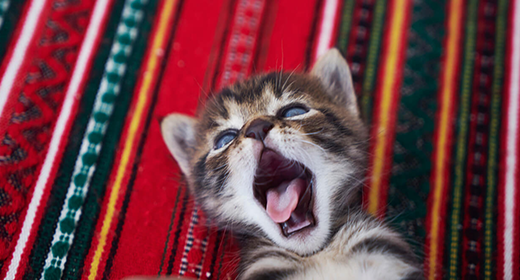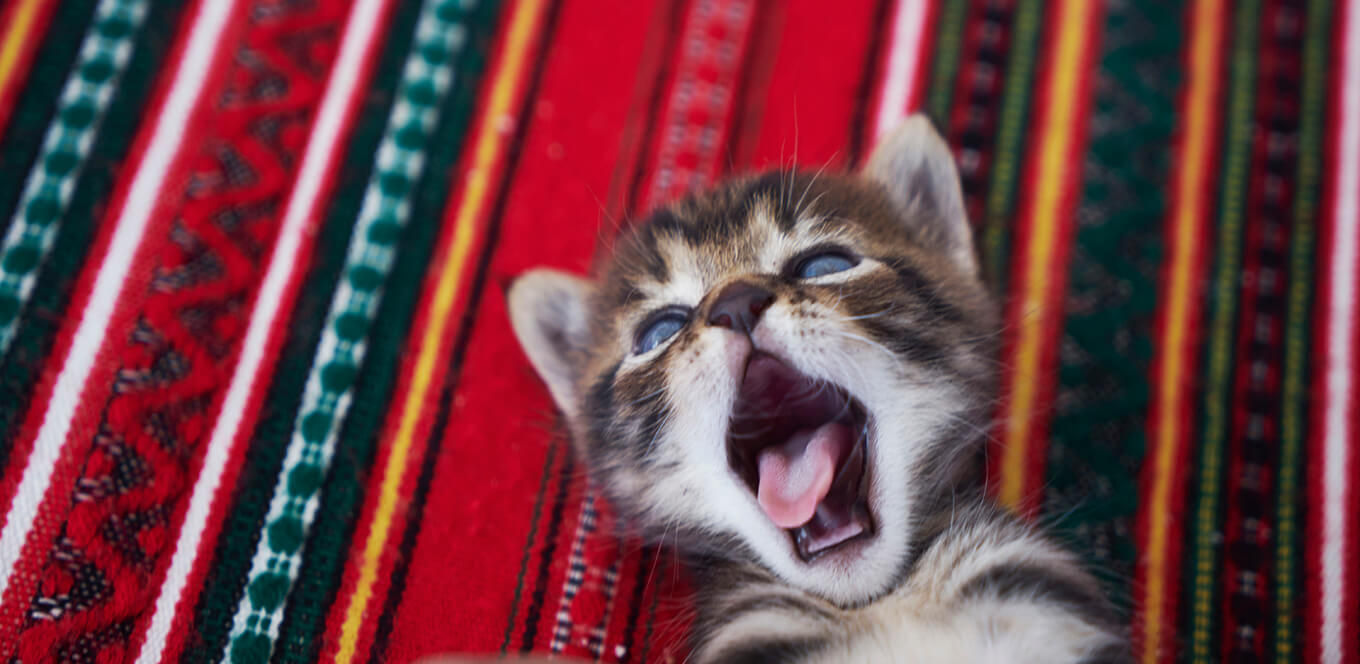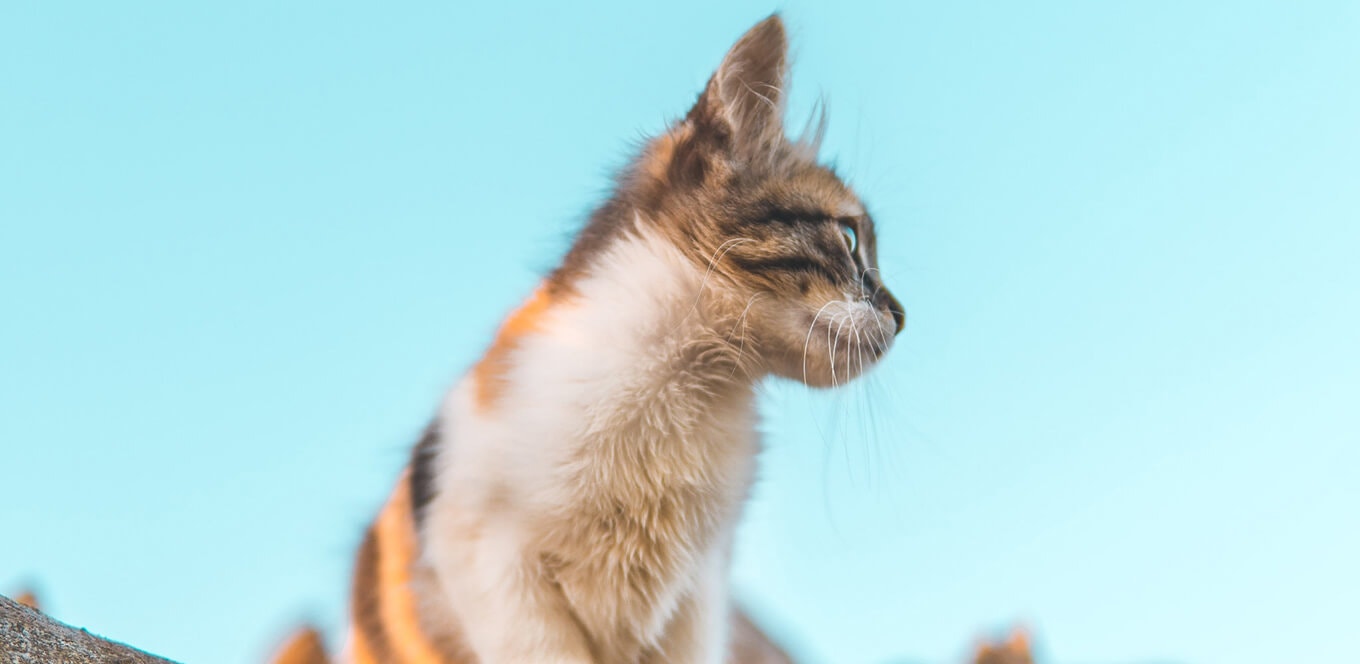

Fiber is a type of carbohydrate that isn't digested by a cat's gastrointestinal tract. It is important for cat health, because it provides bulk to move food through. Some types of fiber can be fermented (broken down by bacteria) in the system. This process creates short-chain fatty acids (SCFA), which are an important energy source for the cells lining the intestinal tract.
Today, people are more aware of fiber and its role in their diet. Studies showing the beneficial effects of higher fiber levels in humans influence the way many people think about their own food and that of their pets. Some manufacturers now apply the recommendations of human nutritionists and make high-fiber diets for cats, but cats have a much shorter digestive tract than we do. And unlike humans, cats are carnivorous, so their nutritional needs are better satisfied with meat rather than plant matter. Therefore, cats have different dietary needs than humans. For more than 60 years, companion animal nutritionists at IAMS™ have been studying diets to meet the special nutritional needs of cats.
IAMS Company research shows the optimal crude fiber level for healthy cats ranges from 1.4% to 3.5%. At these levels, nutrient breakdown is maximized. In unique situations, such as hairballs, higher fiber levels may be beneficial.
An important characteristic of fiber is its fermentability, or how well it can be broken down by bacteria in the intestine. This breakdown produces short-chain fatty acids, which provide energy to the intestines. Fiber varies in fermentability. Fiber sources used in pet foods include cellulose, which is poorly fermentable; beet pulp, which is moderately fermentable; and gums and pectin, which can be highly fermentable. Research has shown that moderate levels of moderately fermentable fiber, such as beet pulp, provide the benefits of energy for the intestinal lining and bulk, without the negative effects of excessive stool or gas and, therefore, are beneficial in cat diets.
High levels of poorly fermentable fiber are used in some weight-reduction pet foods to dilute the calories in a serving. IAMS Company research shows that high fiber levels can make it harder to digest other nutrients in the food and, in turn, reduce the nutritional quality of a cat's diet. Your cat making more trips to the litter box can be a result.
When choosing a pet food, fiber is an important consideration, but remember that the needs of cats are not the same as those of humans. A moderate level of moderately fermentable fiber, such as beet pulp, provides proven nutritional benefits for cats. Cat diets containing high levels of poorly fermentable fiber dilute calories and deprive cats of the nutrients they need.
All IAMS products are made with levels of moderately fermentable fiber needed to promote intestinal health. And all IAMS foods, such as IAMS ProActive Health™ Adult Original with Chicken, contain the moderately fermentable fiber system, which is the exclusive property of IAMS Company and is protected by U.S. Patent No. 5,616,569 for Pet Food Products Containing Fermentable Fibers and Process for Treating Gastrointestinal Disorders.


Taking care of a kitten is a big responsibility. But in addition to nutritious food, a warm place to sleep and plenty of play time, did you know kittens also need their teeth cleaned on a daily basis? Seventy percent of cats show signs of oral and dental disease by age 3 — but that doesn’t mean your kitten has to be among them. Here’s what you can do to take care of your kitten’s oral health.
There are three preventive measures you can take to ensure your pet’s oral hygiene doesn’t become a problem. They’re often referred to as the three D’s:
The first step in taking care of your kitten’s oral health is daily brushing. When you brush your kitten’s teeth, you remove plaque and slow the development of tartar. One of the easiest ways to do this is with a finger brush, which is available at most pet stores. Don’t forget to reward your kitten afterward with plenty of praise and play time!
Just like you, your kitten could benefit from annual or semiannual teeth cleanings. Vets refer to the cleaning as a dental prophylaxis. Besides helping keep your cat’s teeth and gums healthy, it’s the only way to remove tartar.
Dry food can be especially beneficial for oral health because the mechanical brushing action of dry kibble helps remove plaque and works to scrub your kitten’s teeth clean.
If you’re concerned about the health of your kitten’s teeth and mouth, keep an eye out for these signs of dental disease.
More than 300 types of bacteria naturally reside inside your kitten’s mouth. And when she eats, small food particles and saliva combine with the bacteria to form plaque. If plaque is left on the teeth, calcium in your pet’s saliva hardens it, resulting in a hard yellow-brown deposit on her teeth called tartar.
Your kitten lets you know a lot about how she’s feeling through the way she behaves. The following behaviors can indicate an oral health issue or periodontal disease:
Of course, a lot of these symptoms could signify other health issues, so it’s important to let a trained professional diagnose any health problems your pet may be having.
Nobody likes to deal with dental issues, your pet included. And even though your kitten can’t talk, that doesn’t mean she isn’t in pain. But if you’re armed with the three D’s of dental hygiene, your furry friend is sure to be happy and healthy for many years to come.

